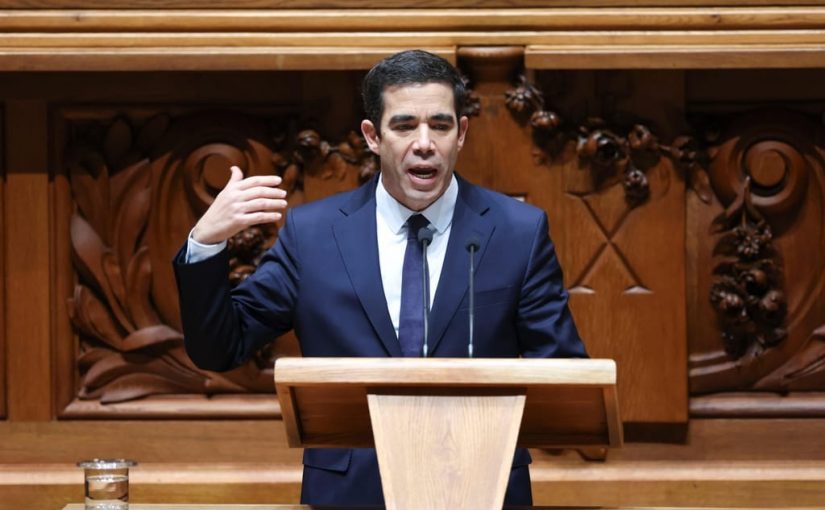Brazil opens probe into Anglo American's $500 million nickel sale, FT reports
Portugal: Government against ‘instrumentalising immigrants’

File photo: Lusa
Portugal’s minister for the presidency, António Leitão Amaro, criticised on Thursday parties that draw attention to the fact that someone is an immigrant, either to immunise or persecute them, rejecting the “instrumentalisation of foreigners”.
“Justice is blind, and those who put immigrants at the centre and uncover the statue of justice are those who lower the blindfold and say look, they’re immigrants over there”. In doing so, they make the association, either because they want to stigmatise them or, who knows, immunise them, or because they want to persecute them,” said the minister.
António Leitão Amaro was speaking at a debate proposed by the government on the National Implementation Plan for the European Pact for Migration and Asylum, in Parliament.
“For some reason, the statue of justice has its eyes covered, it’s because the police and justice and the courts don’t decide on skin colour, religious creed or nationality,” he said, stating that “race, skin colour, nationality are no reason to persecute or to be immune from persecution”.
In response to the Left Bloc (BE), the minister of the presidency said that those who draw attention to the fact that someone is a foreigner are the ones who “put up the statue of justice, the police looking at nationality”.
“That’s not how we do it. We treat human beings as human beings, crime as crime, and a dangerous street as a dangerous street. Everything else is unworthy,” he emphasised.
In his opening speech, Leitão Amaro repudiated what he considered to be “the instrumentalisation of the foreigners who are here, whether it’s the instrumentalisation of those extremes who want to blame them for everything” or the “other extremes who ignore the duties they also have and who think there can be no accountability for anything”.
He emphasised that the government’s approach is “one of moderation, firmness, and balance between firm regulation and supervision, and a humanist welcome for those who seek Portugal” — in other words, neither “doors wide open” nor “doors all closed”.
Regarding the documents under discussion, António Leitão Amaro said that the plan to implement the European Pact for Migration and Asylum at the national level “is one of the 41 measures in an action plan presented by the government” and aims to “embody this new policy of firm moderation, regulation and humanistic integration”.
“Although it was only presented six months ago, and for an entire legislature, it has already been half-implemented,” he said.
During the debate, the BE accused the government of “polarising the discourse on immigration, “mimicking the extreme right”, and also of “instrumentalising immigrants and the security forces for party-political purposes”.
The Bloc’s parliamentary leader argued that “no association can be made between immigration and security” and called on the government to act based on “facts and not perceptions”.
The leader of the far-right Chega party, André Ventura, said that the government was “chasing” the flags of his party and advised those who “take it all the way” and support measures such as quotas for the entry of immigrants, compulsory health insurance and greater control.
In response, the minister pointed out that the new European pact “tightens the rules”, but at the same time “also has many elements of more humanity in integration, namely with children”.
He also accused André Ventura of “always looking to score points and never, never wants anything to be done”.
Livre questioned the government about the participation of civil society in this process. Minister Leitão Amaro said there would be a meeting of the National Council for Migration and Asylum on Monday.












Leave a Reply
Be the First to Comment!
You must be logged in to post a comment.
You must be logged in to post a comment.